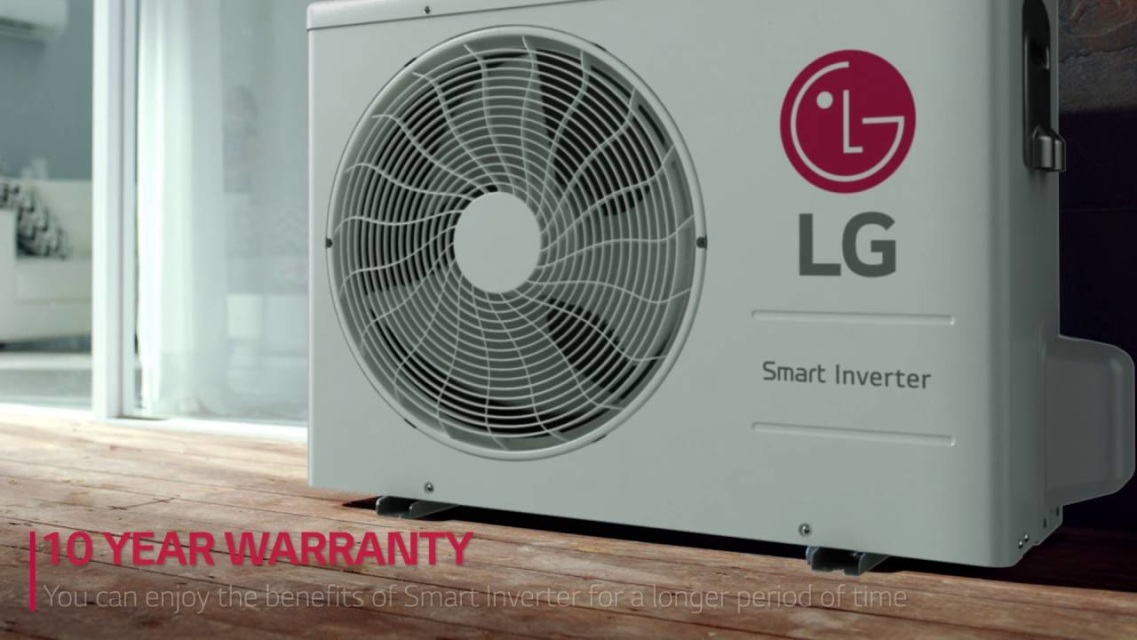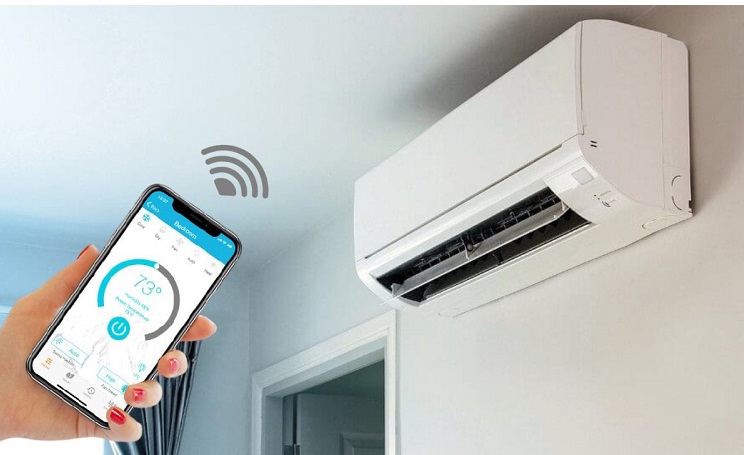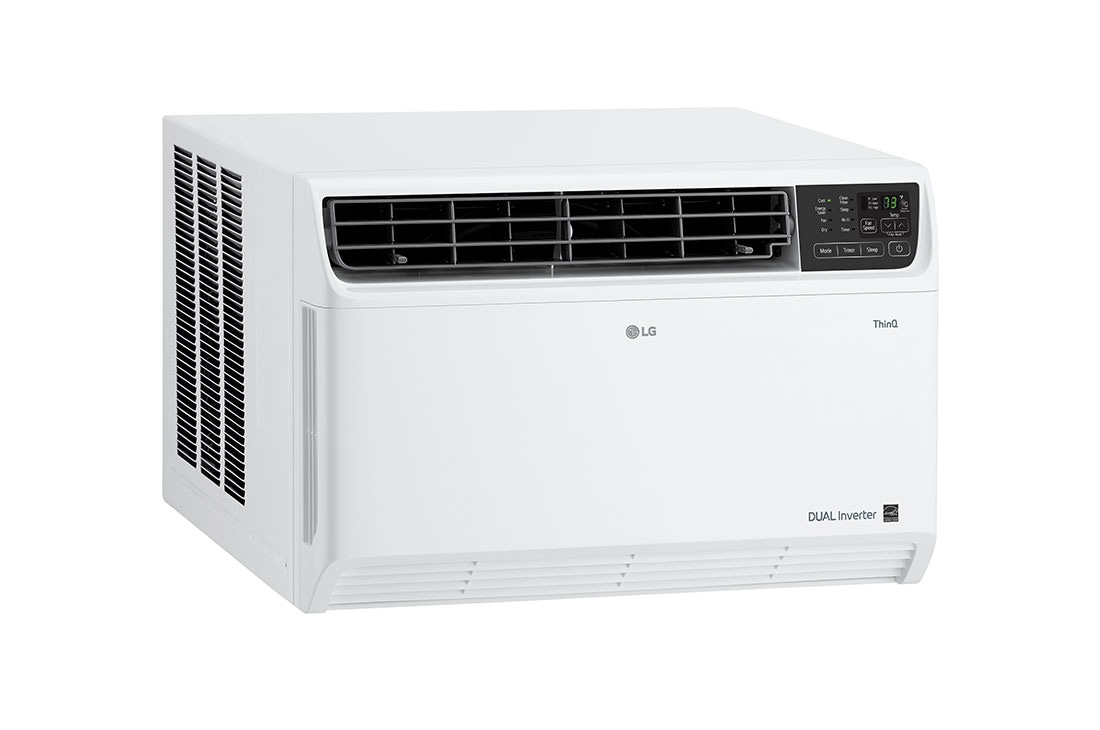What Is A Smart Inverter Air Conditioner

Choosing a new air conditioner can be overwhelming with all the different models and technologies available. One term you'll likely encounter is "smart inverter air conditioner." This guide will break down what that means, how it works, and why it might be the right choice for you.
What is an Air Conditioner Inverter?
Let's start with the basics. A traditional, non-inverter air conditioner operates at a fixed speed. It's either fully on, cooling your room, or fully off, waiting for the temperature to rise again. This on-off cycling consumes a lot of energy and can lead to temperature fluctuations.
An inverter, on the other hand, is a device that controls the speed of the compressor, the heart of your AC unit. Think of the compressor as the engine. Instead of just running at one speed, the inverter allows the compressor to run at variable speeds, adjusting the cooling output to match the actual cooling demand.
Imagine driving a car. A non-inverter AC is like driving with only the accelerator pedal slammed to the floor or completely released. An inverter AC is like having smooth control over the accelerator, allowing you to maintain a consistent speed efficiently.
The "Smart" Aspect: Beyond Basic Inverter Technology
So, all smart air conditioners are inverter air conditioners, but not all inverter air conditioners are necessarily “smart”. The "smart" component adds a layer of intelligence and connectivity to the inverter technology. This typically involves:
- Wi-Fi connectivity: Allows you to control your AC from your smartphone or other devices, even when you're not at home.
- Smart home integration: Compatibility with platforms like Google Assistant, Amazon Alexa, or Apple HomeKit, enabling voice control and integration with other smart home devices.
- Smart sensors: Built-in sensors that monitor room temperature, humidity, and occupancy to automatically adjust cooling settings for optimal comfort and energy efficiency.
- Learning capabilities: Some smart ACs can learn your preferences and automatically adjust the cooling schedule based on your habits.
- Energy monitoring: Provides insights into your energy consumption, helping you identify areas for improvement and save money.
Essentially, a smart inverter AC is an intelligent, connected, and energy-efficient cooling solution.
How Does a Smart Inverter Air Conditioner Work?
Here's a breakdown of how the technology comes together:
- Temperature Sensing: The AC unit constantly monitors the room temperature using its sensors.
- Demand Assessment: Based on the temperature and your setpoint, the system determines the cooling demand.
- Inverter Control: The inverter adjusts the speed of the compressor to match the required cooling output. If the room is far from the desired temperature, the compressor will run at a higher speed. As the room approaches the setpoint, the compressor speed will gradually decrease.
- Smart Features: The smart features, like Wi-Fi connectivity and smart home integration, allow you to control the AC remotely and customize the cooling schedule.
- Refrigerant Circulation: Like all AC units, smart inverters rely on refrigerant. Think of refrigerant as the 'blood' of your AC system, carrying heat from inside to outside. The compressor pressurizes and circulates the refrigerant, enabling the cooling process.
Benefits of Smart Inverter Air Conditioners
Smart inverter ACs offer several advantages over traditional, non-inverter models:
Energy Efficiency
This is the biggest advantage. By adjusting the compressor speed, smart inverter ACs use significantly less energy than traditional units. They avoid the energy surge of starting and stopping, maintaining a consistent temperature with lower power consumption. This translates to lower electricity bills.
The Seasonal Energy Efficiency Ratio (SEER) is a common metric used to measure the energy efficiency of air conditioners. Smart inverter ACs typically have much higher SEER ratings than non-inverter models.
Consistent Temperature
Because the compressor adjusts its speed continuously, smart inverter ACs can maintain a more consistent temperature. You won't experience the temperature swings common with traditional units, leading to greater comfort.
Quieter Operation
When running at lower speeds, the compressor generates less noise. This makes smart inverter ACs significantly quieter than traditional units, especially when maintaining the desired temperature.
Longer Lifespan
The reduced stress on the components, due to the variable speed operation, can contribute to a longer lifespan for the AC unit. Frequent starting and stopping of the compressor in non-inverter ACs can lead to wear and tear.
Smart Control and Convenience
The smart features offer unparalleled convenience and control. You can adjust the temperature from anywhere, set schedules, and monitor your energy consumption. Integration with smart home systems allows for seamless automation and voice control.
Potential Drawbacks
While smart inverter ACs offer numerous benefits, there are a few potential drawbacks to consider:
Higher Initial Cost
Smart inverter ACs typically have a higher upfront cost than traditional models. However, the long-term energy savings can often offset this initial investment.
Complexity of Repair
The more complex electronics of a smart inverter AC can make repairs more challenging and potentially more expensive. It's crucial to choose a reputable brand with readily available service and parts.
Dependence on Technology
The smart features rely on a stable Wi-Fi connection. If your internet goes down, you might lose some of the remote control functionality. However, the AC unit will still function as a regular air conditioner.
Is a Smart Inverter Air Conditioner Right for You?
Consider the following factors when deciding if a smart inverter AC is the right choice for your needs:
- Budget: Are you willing to invest more upfront for long-term energy savings?
- Energy Consumption: Are you concerned about your electricity bills and environmental impact?
- Comfort Level: Do you value consistent temperature and quiet operation?
- Tech Savviness: Are you comfortable using smart home technology and mobile apps?
- Room Size and Usage: For frequently used rooms and larger spaces, the benefits of a smart inverter AC are more pronounced.
If you prioritize energy efficiency, consistent comfort, and smart control, a smart inverter AC is likely a worthwhile investment. However, if you're on a tight budget and don't need the smart features, a traditional AC might suffice.
Key Features to Look For When Buying
When shopping for a smart inverter AC, keep these features in mind:
- SEER Rating: Look for a high SEER rating for maximum energy efficiency.
- Wi-Fi Connectivity: Ensure the AC supports Wi-Fi and is compatible with your smart home ecosystem.
- Smart Sensors: Check for sensors that monitor temperature, humidity, and occupancy.
- Quiet Operation: Pay attention to the noise level of the unit, especially if you're sensitive to noise.
- Warranty: Choose a brand with a comprehensive warranty and reliable customer support.
- Refrigerant Type: Newer models use more environmentally friendly refrigerants like R-32.
- Filter Type: Look for models with effective air filters that remove dust, pollen, and other allergens.
Installation and Maintenance
Proper installation and maintenance are crucial for ensuring the optimal performance and longevity of your smart inverter AC.
- Professional Installation: Always hire a qualified HVAC technician for installation. Improper installation can void the warranty and lead to performance issues.
- Regular Cleaning: Clean the air filters regularly (typically every 1-3 months) to maintain airflow and efficiency.
- Coil Cleaning: Periodically clean the condenser coils (outdoor unit) to remove dirt and debris.
- Annual Maintenance: Schedule an annual maintenance checkup with a qualified technician to inspect the system and address any potential problems.
Conclusion
Smart inverter air conditioners represent a significant advancement in cooling technology. By combining inverter technology with smart features, they offer superior energy efficiency, consistent comfort, and convenient control. While they may have a higher initial cost, the long-term benefits often outweigh the drawbacks. Carefully consider your needs and budget, and choose a model with the features that are most important to you. With proper installation and maintenance, a smart inverter AC can provide years of reliable and efficient cooling.










